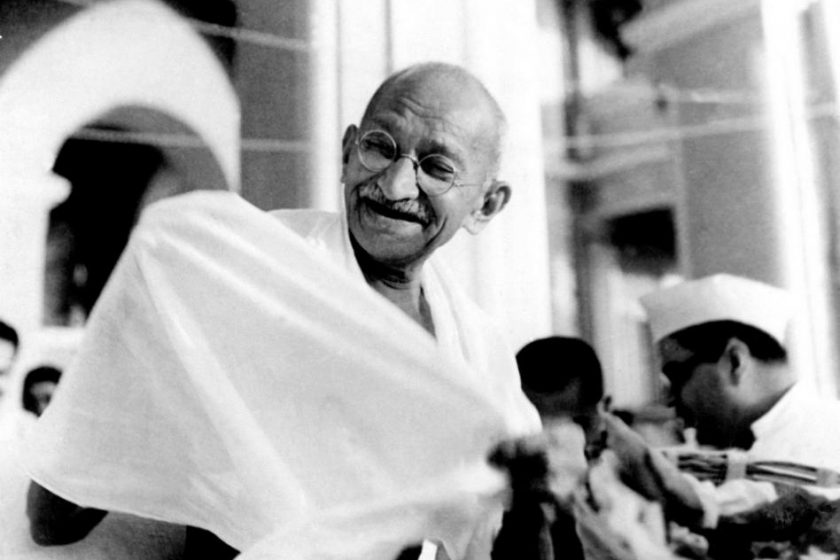Mohandas Karamchand Gandhi, commonly referred to as Mahatma Gandhi, was one of the most significant figures of the 20th century. His philosophy of non-violence, known as ahimsa, was pivotal in India’s fight for independence and served as an inspiration for civil rights movements around the globe. Although Gandhi’s methods were deeply entrenched in Hindu traditions, it also exhibited considerable similarities with Buddhist teachings, especially in its focus on non-violence, compassion, and mindfulness.
The Concept of Ahimsa
Central to Gandhi’s philosophy was the idea of ahimsa, which means “non-violence” or “non-harm.” Gandhi broadened this concept beyond its conventional meaning of refraining from physical harm to encompass the avoidance of harm in thought, word, and action. He posited that genuine non-violence necessitated active love and compassion for all beings, including those considered enemies.
This interpretation of ahimsa is closely related to the Buddhist idea of ahimsa, which is one of the Five Precepts that underpin Buddhist ethics. In Buddhism, ahimsa goes beyond just the lack of violence; it represents an active state of love and compassion for all sentient beings.
Satyagraha and the Middle Way
Gandhi’s approach to non-violent resistance, known as Satyagraha (which translates to “holding onto truth”), shares notable similarities with the Buddhist principle of the Middle Way. Satyagraha promoted a course that lies between passively accepting injustice and resorting to violent opposition. It highlighted the significance of peaceful protests, civil disobedience, and appealing to the oppressor’s conscience.
The Buddha’s Middle Way also advocates for a balanced strategy that avoids the extremes of self-indulgence and harsh asceticism. Both philosophies emphasize the necessity of discovering a harmonious and balanced route in life and in resolving conflicts.
Mindfulness and Self-Purification
Gandhi stressed the significance of self-purification and inner transformation as essential steps for bringing about change in the world. He believed that individuals needed to first overcome their own inner violence, greed, and hatred before they could aspire to change society.
This emphasis on inner development closely aligns with Buddhist practices of mindfulness and meditation. In Buddhism, fostering mindfulness and self-awareness is regarded as crucial for overcoming negative mental states and cultivating compassion for all beings.
Interconnectedness and Karma
Gandhi’s perspective on the world, similar to that of Buddhism, acknowledged the essential interconnectedness of all life. He frequently discussed the unity of all existence and the importance of looking beyond superficial distinctions. This viewpoint shaped his approach to social justice and his conviction that causing harm to others ultimately results in harming oneself.
This notion is akin to the Buddhist principles of dependent origination (pratityasamutpada) and karma. Both Gandhi and Buddhist philosophy emphasize that our actions have extensive repercussions, impacting not just ourselves but the entire network of life.
Compassion and Universal Love
At the heart of both Gandhi’s philosophy and Buddhist teachings is the development of universal love and compassion. Gandhi’s idea of sarvodaya (welfare of all) promoted a society focused on the upliftment of everyone, especially the most disadvantaged. He maintained that genuine non-violence arises from a place of love, even towards one’s adversaries.
This closely corresponds with the Buddhist practices of metta (loving-kindness) and karuna (compassion), which involve nurturing limitless goodwill towards all beings, including those who may be viewed as enemies.
Conclusion
Although Gandhi was mainly influenced by his Hindu heritage, the similarities between his philosophy and Buddhist teachings are significant. Both emphasize the importance of non-violence, compassion, mindfulness, and the awareness of our essential interconnectedness. Gandhi’s method of enacting social change, based on these principles, continues to motivate individuals and movements globally, presenting a strong alternative to violence and oppression.
As we confront the challenges of the 21st century, the combined insights of Gandhi’s philosophy and Buddhist teachings are more pertinent than ever, offering a framework for fostering a more peaceful and equitable world.
May all sentient beings be happy!


